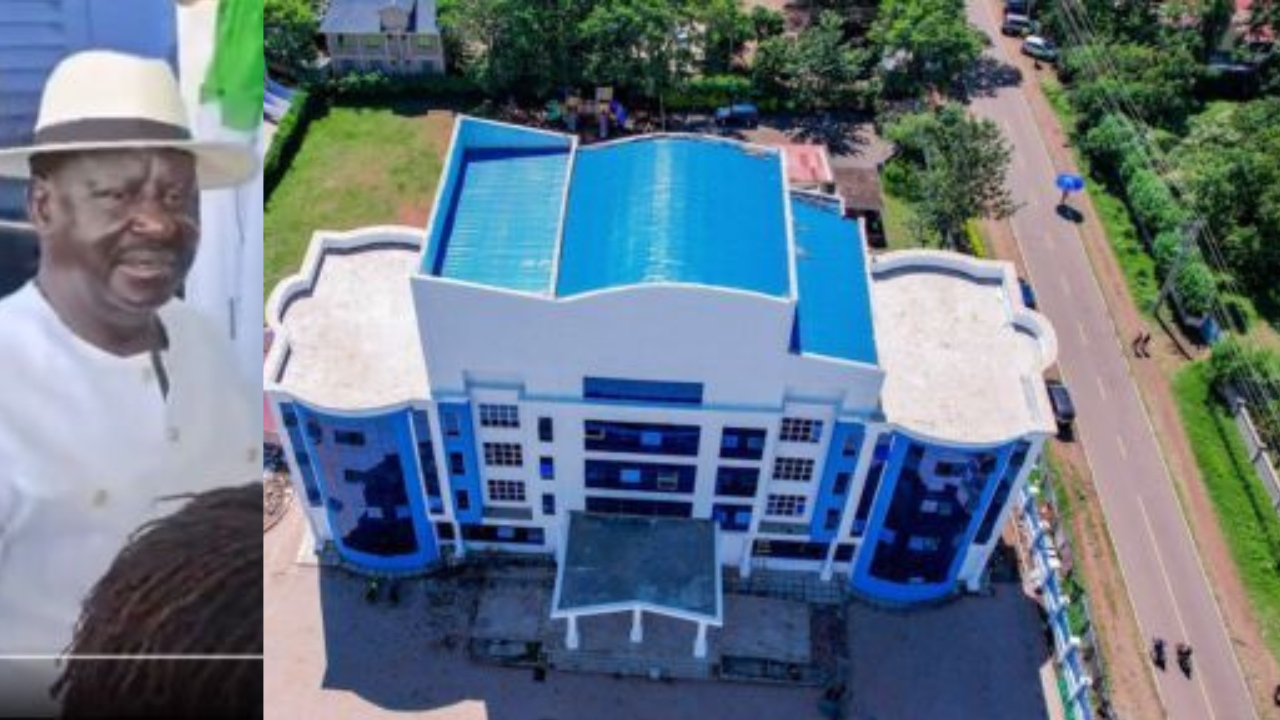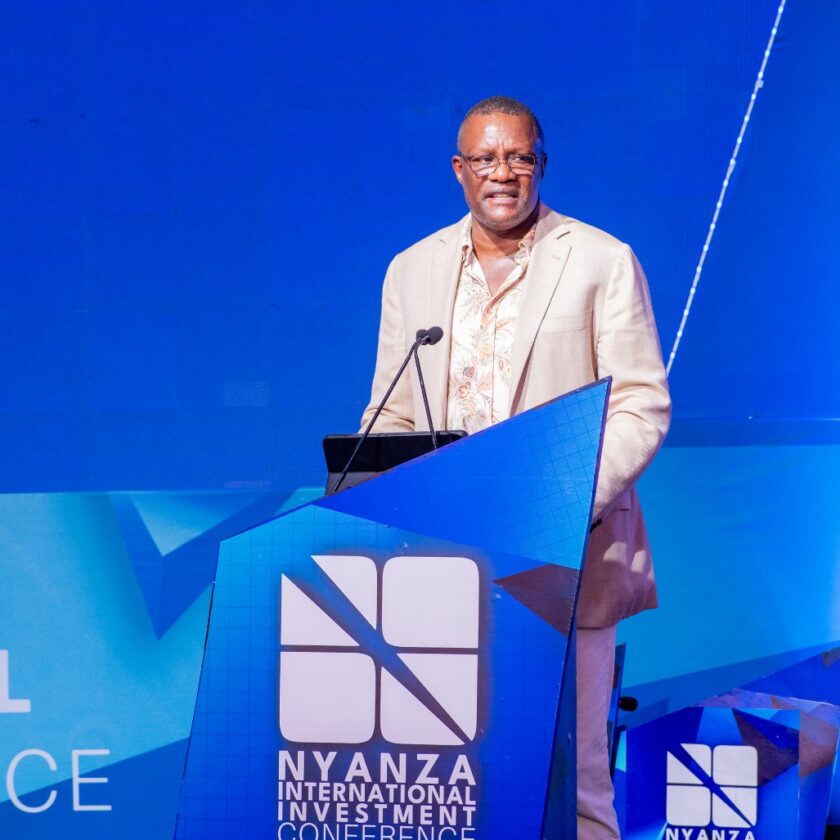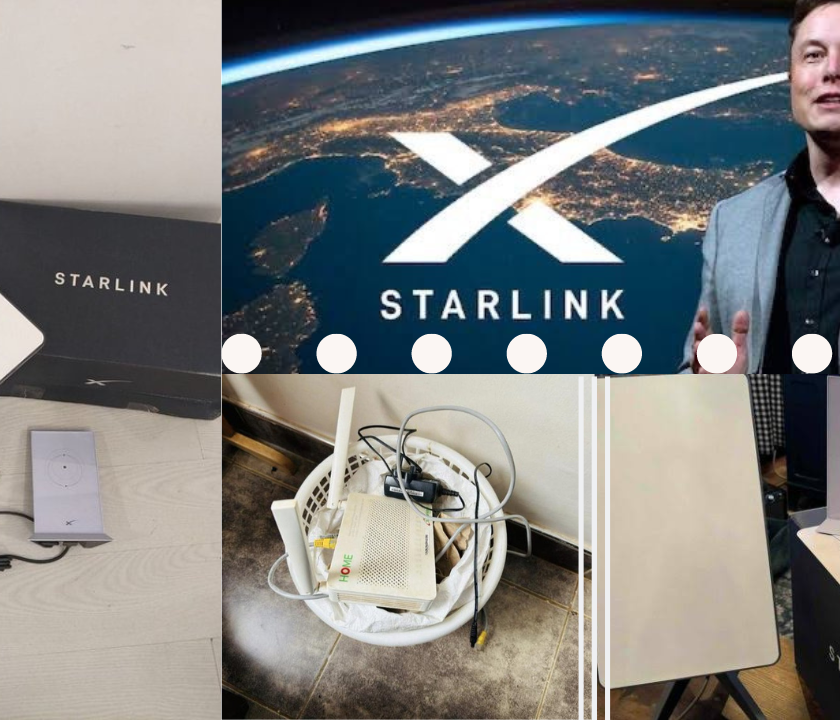On February 5, 2024, Raila Odinga, the leader of the Azimio la Umoja – One Kenya coalition, took a significant step forward for Kisumu by inaugurating the new headquarters of the Kisumu Water and Sanitation Company (KIWASCO), a government building. The ceremony, marked by Odinga’s presence in an all-white ensemble, also featured the attendance of Kisumu Governor Anyang Nyong’o among various political dignitaries. This event highlighted a pivotal advancement for the city, underscoring the critical themes of sustainable water management and the conservation of the environment.
The edifice that now hosts KIWASCO is a notable landmark within Kisumu, distinguished by its five-story stature, a striking white facade, and sky-blue windowpanes. This development is part of a broader initiative aimed at ensuring the provision of sufficient clean drinking water and the efficient management of wastewater across Kisumu City. The unveiling of KIWASCO’s strategic plan during the commissioning ceremony further emphasized the organization’s dedication to improving the water supply and sanitation services within the region.
The timing of this commissioning is particularly resonant, coming at a juncture where Kisumu, under the influence of Raila Odinga, has been actively articulating its ambitions and confronting its challenges. In the previous year, Odinga convened with leaders from the Nyanza region in Kisumu to deliberate on a 26-point resolution that addressed various concerns regarding the national political landscape and its ramifications for the region. These resolutions mirrored the community’s desires for democracy, integrity in leadership, and the safeguarding of their rights and freedoms.
The inauguration of the KIWASCO headquarters by Raila Odinga does more than just bolster the city’s water and sanitation infrastructure. It represents a tangible manifestation of a broader commitment to catering to the socio-economic necessities of Kisumu and its adjacent communities. This event not only marks a milestone in the city’s development trajectory but also symbolizes a steadfast dedication to enhancing the quality of life for its inhabitants through sustainable and responsible management of essential resources.
KIWASCO’S Daily Water Treatment Capacity is 80,000 Cubic Meters
The Kisumu Water and Sanitation Company (KIWASCO), established in 2001, serves as a pivotal institution in the provision of water and sanitation services within Kisumu City, Kenya. The organization was founded with the primary objective of ensuring the availability of clean and safe water, in addition to the efficient management of wastewater for Kisumu’s residents. This initiative was launched in response to the escalating need for sustainable water and sanitation solutions, a need that has become increasingly urgent in the context of rapid urbanization and population growth.
KIWASCO’s operational capabilities in terms of water supply have seen considerable advancements over the years. The company has reported a daily treatment capacity of 80,000 cubic meters, distributed across its two principal facilities: the Dunga treatment plant, with a capacity of 44,000 cubic meters, and the Kajulu treatment plant, capable of processing 36,000 cubic meters. This infrastructure underpins KIWASCO’s commitment to satisfying the water requirements of Kisumu’s population, ensuring the availability of sufficient water for both domestic and commercial applications.
A significant aspect of KIWASCO’s operational focus includes the reduction of Non-Revenue Water (NRW), which encompasses water that is lost before billing due to leaks, theft, or metering inaccuracies. According to the Water Services Regulatory Board (WASREB) report for the fiscal year 2019/2020, KIWASCO has achieved an NRW rate of 36%. This statistic not only illuminates the challenges inherent in mitigating water loss but also emphasizes KIWASCO’s endeavors to enhance the efficiency and sustainability of its water delivery systems.
Moreover, KIWASCO has demonstrated a collection efficiency of 84%, coupled with an improvement in water supply coverage from 82% in 2019 to 83% in 2020. These metrics indicate progressive strides towards increasing the accessibility of clean water to a broader segment of the population. However, it is notable that sewer coverage remains significantly lower, at a rate of 18%, pinpointing a critical area requiring further development and investment to improve sanitation services within the city.
KIWASCO’s efforts since its inception reflect a robust commitment to meeting the essential water and sanitation needs of Kisumu City. Through strategic enhancements in treatment capacities, focused initiatives to reduce non-revenue water, and endeavors to expand service coverage, KIWASCO plays a crucial role in promoting the health and wellbeing of the city’s residents. Nonetheless, the disparity in sewer coverage presents an ongoing challenge, necessitating continued focus and innovation to achieve comprehensive and coverage in the interest of the people in Kisumu County.
Kisumu City News.




